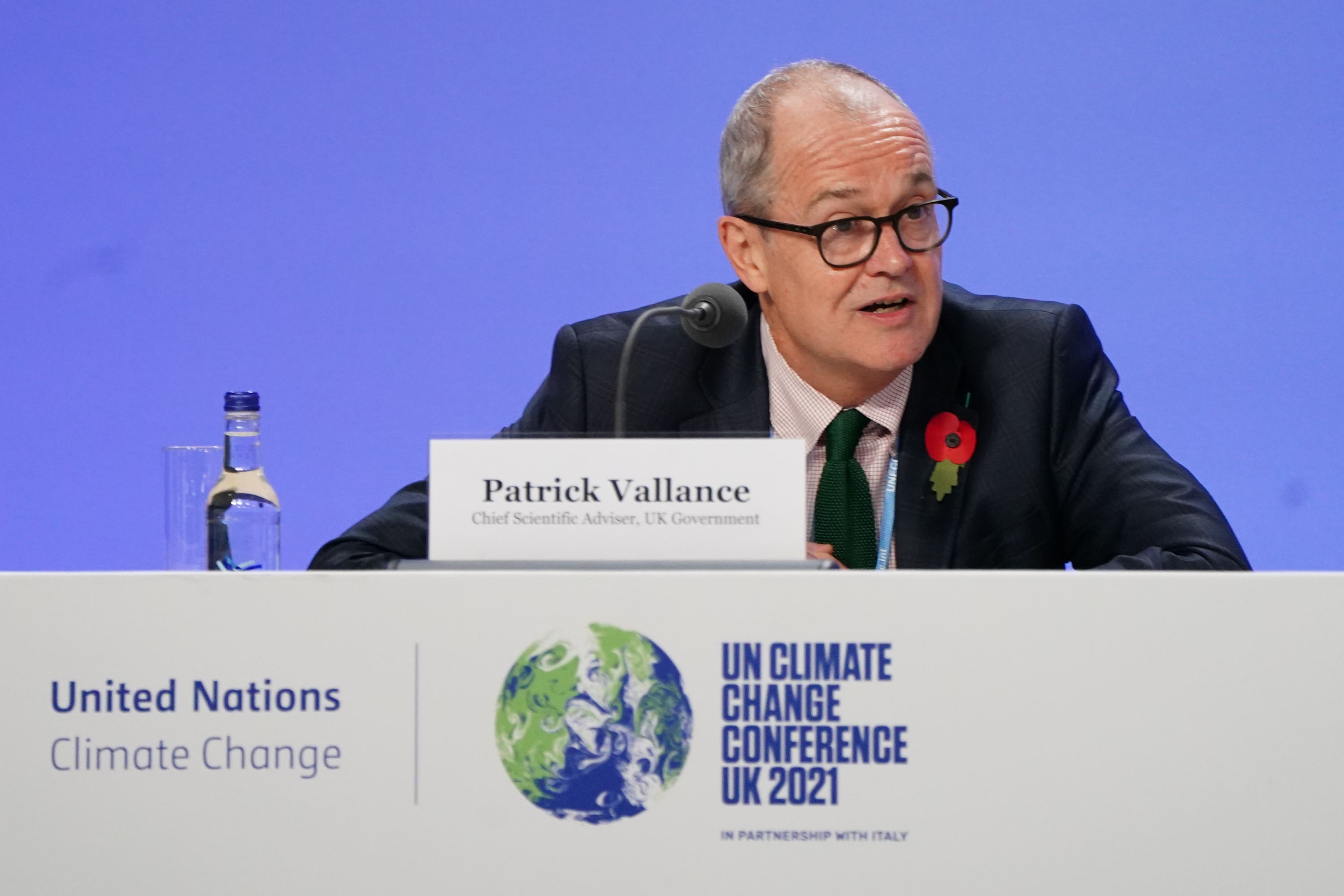Sir Patrick Vallance issues warning over net-zero goal
The UK’s chief scientific adviser gave the warning at the Lister Memorial Lecture in Edinburgh.

Your support helps us to tell the story
From reproductive rights to climate change to Big Tech, The Independent is on the ground when the story is developing. Whether it's investigating the financials of Elon Musk's pro-Trump PAC or producing our latest documentary, 'The A Word', which shines a light on the American women fighting for reproductive rights, we know how important it is to parse out the facts from the messaging.
At such a critical moment in US history, we need reporters on the ground. Your donation allows us to keep sending journalists to speak to both sides of the story.
The Independent is trusted by Americans across the entire political spectrum. And unlike many other quality news outlets, we choose not to lock Americans out of our reporting and analysis with paywalls. We believe quality journalism should be available to everyone, paid for by those who can afford it.
Your support makes all the difference.Sir Patrick Vallance has issued a stark warning about the UK’s ambition to reach its 2050 net-zero goal in the fight against climate change.
The UK’s chief scientific adviser gave the warning at the Lister Memorial Lecture in Edinburgh, where he told the audience that “the risk of 2050 is it sounds a long way off”.
“If you think about the scaling of the implementation challenge, and you take something like replacing all domestic heating or making sure that our houses are properly insulated or coming up with an alternative to cement and concrete, or making that carbon natural, by 2050, you’ve got to start very soon,” Sir Patrick said.
You haven't got more than five years or so to actually get this right and make some decisions about what you want to do if you're going to scale those things sufficiently to be ubiquitous by 2050.
“You haven’t got more than five years or so to actually get this right and make some decisions about what you want to do if you’re going to scale those things sufficiently to be ubiquitous by 2050.”
Sir Patrick made the comments ahead of being awarded the SCI’s (Society of Chemical Industry) Lister Medal at the Royal Society of Edinburgh on Thursday.
The medal, which he was awarded for his leadership on the Covid-19 vaccine during the pandemic, is named after Sir Joseph Lister – the British surgeon who introduced antisepsis into hospital routine and pioneered the field of bacteriology in the 19th century.
It was first awarded to Sir Alexander Fleming, the inventor of antibiotics, in 1944 and was last awarded to Dame Sally Davies in 2016 in recognition of her work on addressing antimicrobial challenges.
At the lecture, he told the audience of students, scientists and academics a science base must be retained in the country to help with the shift to net-zero, but that companies were also needed to help scale solutions.
“That’s a big challenge. But it’s a challenge, actually, that’s rather worth going for because it’s going to be a multitrillion-dollar economic benefit. Across the world there’s a big market,” he said.
During the 40-minute lecture, Sir Patrick said there was not one part of government where science, engineering or technology did not play a role and it was aiming to up their intake of graduates from science, technology, engineering and maths backgrounds as part of the fast stream programme.
“I am really pleased to say that the fast stream, which had been suspended for a while, is now back in action. And the target is to have 50% (who have graduated with a) Stem degree by 2024,” he said.
And Sir Patrick told the audience that while the country had a “good foundational science base”, it could not be taken for granted and the industrial base must be looked after, too, so future challenges can be addressed.
He also spoke of the response to the Covid pandemic, and how to better prepare for any future pandemics.